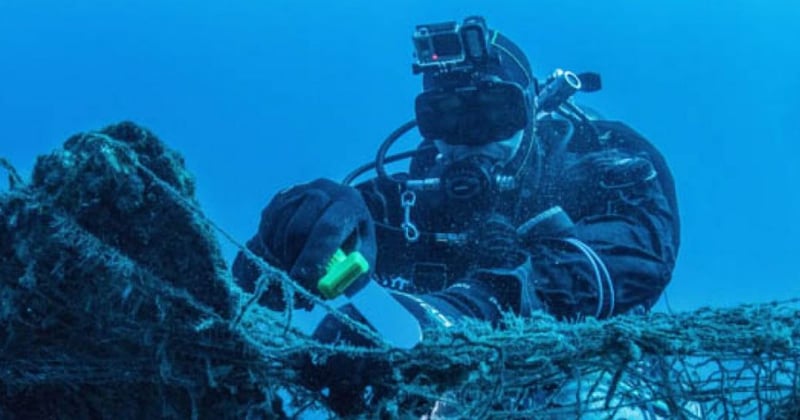
Public-Private Sector Collaborations across the US help to Reduce Ghost Gear
Blog
Groundbreaking initiatives demonstrate benefits to the marine ecosystem and the industry
The state of California recently signed into law the Whale Protection & Crab Gear Retrieval Act, an innovative bill which seeks to reduce the volume of ghost fishing gear by compensating crab fishermen for removing fishing gear that would otherwise be lost in the ocean. With record numbers of whales reported entangled in California waters in 2015 alone, this law has the potential to be a crucial protective measure for the West Coast’s marine life. The law was also achieved with wide cross-sector support, from animal and environmental protection groups and the fishing industry itself.
Groundbreaking initiatives like these between the public and private sectors these are taking place across the United States, and we’re beginning to see some inspiring results.
In January 2014, Senator (and current Democratic Vice-Presidential nominee) Tim Kaine of Virginia spoke with World Animal Protection about lost fishing gear, and a program he supported when he served as governor of Virginia to address the hazards of ghost gear while also helping the crab fishermen whose livelihoods depend on the Chesapeake Bay.
Globally, 640,000 metric tons of fishing gear is lost or abandoned throughout the world’s oceans. This ghost gear causes serious damage to the marine ecosystem while also contributing to the decline of fish and crustacean populations. Ghost gear poses tremendous risk to marine wildlife, entangling approximately 136,000 whales, seals, dolphins, and sea lions every year, along with millions of sea birds, turtles and fish. In addition, the loss of gear poses safety hazards to the watermen and is expensive to recover or replace.
In response to the decline of the blue crab population in the Chesapeake Bay, Senator (then Governor) Kaine worked with the Virginia Institute of Marine Science (VIMS) to put into place the Marine Debris Location and Removal program, employing the commercial watermen to locate and remove lost or derelict fishing gear from Virginia waters while allowing the scientists of VIMS to collect crucial data on the impacts of ghost gear. The target species, blue crab, was experiencing the highest mortality from lost pots with an estimated 900,000 animals killed each year, a potential annual economic loss to the fishery of $400,000. Other impacted species captured and killed in derelict pots included Atlantic croaker and black sea bass. While some causes of gear loss are unavoidable, others can be managed to minimize loss – one of the goals of World Animal Protection’s Sea Change campaign.
Ultimately, the crabbers removed more than 34,000 derelict pots during the six-year run of the program – an estimated ten percent of all derelict pots in the Bay. A study conducted after the program’s conclusion found that the recovery of those lost pots generated $21.3 million worth of increased commercial catches, a 27 percent increase.
As these results show, reducing and removing ghost gear is a win-win for the marine ecosystem and for industry, creating more sustainable fisheries in the long term. We are hopeful that collaborative legislative and private sector initiatives like these in California and Virginia can help to inspire similar projects in other coastal states and countries!
Globally, 640,000 metric tons of fishing gear is lost or abandoned throughout the world’s oceans. This ghost gear causes serious damage to the marine ecosystem while also contributing to the decline of fish and crustacean populations.